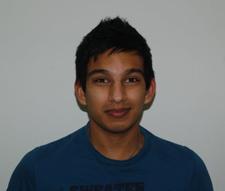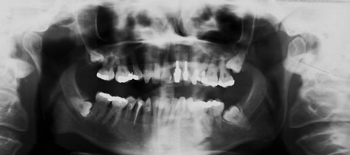 Working in maxilla facial is quite a shock to the system from the word go. You have to act fast and learn faster. Hussein Hassanali, a graduate from Liverpool dental school, reflects on his year working as a dental SHO.
Working in maxilla facial is quite a shock to the system from the word go. You have to act fast and learn faster. Hussein Hassanali, a graduate from Liverpool dental school, reflects on his year working as a dental SHO.
Teamwork is essential to my role; you are now part of a much bigger team of which you are the most junior member. Your communication skills are the key to working well, both internally and externally, as referrals are often needed to other medical specialities or allied healthcare professionals in and out of the hospital. Not only that, but communication between departments is essential in order to successfully manage patients and provide a high standard of care.
The management of patients is very different to working in general practice. You have to take the whole picture into account and there is a wider range of conditions to treat. Most dentistry involves surgical management and treatment, whereas in Max Fax you need to consider a lot of medical management and treatment in combination with the surgery. While the practical skills and manual dexterity you used every day as a dentist are still there, they are just used in a different capacity. You are expected to do medical tasks with assistance and supervision, tasks that you don't practise regularly at dental school. But this is where you have to remember that the same dexterity still applies, and having those steady hands is a great asset.
So how do you overcome all this? Well it's through the same principles as foundation training - teaching, learning, planning, preparation and most important of all, diligence. You need to be willing to be open to new ideas and be pushed a long way out of your comfort zone. It's a mental barrier, but once you get past it and realise that you can do it, things start to flow more easily. Support from senior colleagues is something that should be used constantly and you need to take the knowledge they pass on and apply it to clinical situations. Never go beyond your means though, being aware of your competency level is imperative. If it's something you can't handle, don't try persevering with it, get someone more senior involved.
 Working in maxilla facial is an incredibly taxing job, but it's very worthwhile. For any dentist wanting to go into a speciality, it's a necessity, but there are still a lot of skills you can take to general dental practice too. Your extraction technique is vastly improved, your oral medicine is better understood, you can offer non-surgical treatment to patients where possible and your patient management is elevated to a higher standard. Not only that, but there are clinical and administrative qualities you have picked up along the way too such as referrals and audits.
Working in maxilla facial is an incredibly taxing job, but it's very worthwhile. For any dentist wanting to go into a speciality, it's a necessity, but there are still a lot of skills you can take to general dental practice too. Your extraction technique is vastly improved, your oral medicine is better understood, you can offer non-surgical treatment to patients where possible and your patient management is elevated to a higher standard. Not only that, but there are clinical and administrative qualities you have picked up along the way too such as referrals and audits.
I have been exposed to a wide range of maxillofacial procedures and this has helped me to appreciate the treatment provided to patients referred to the hospital service. The treatment provided can often have implications on the routine dental care of patients. I am also more aware of my medical management and how this imposes on a patients dental health and treatment. To add to that, I feel better equipped to handle a medical emergency following the training I have undergone. I have not had to deal with an emergency yet (touch wood!), but if one arises, I feel more confident in taking the appropriate action.
I would recommend everyone to do at least one year as an SHO, even if it's just to become aware of the hospital environment and what the other half of the process is like. After all, you need to try it to decide if it is the right career path for you.
Dental Protection provides a whole range of risk management to support you through your career.
Find out more